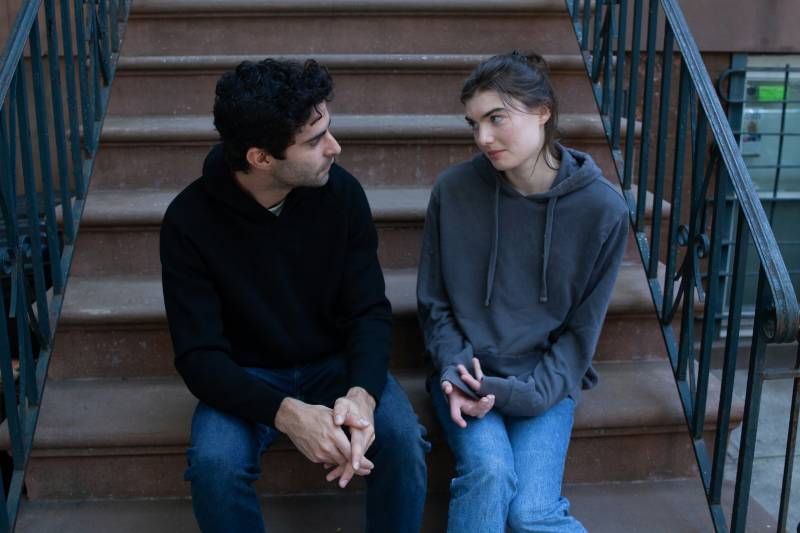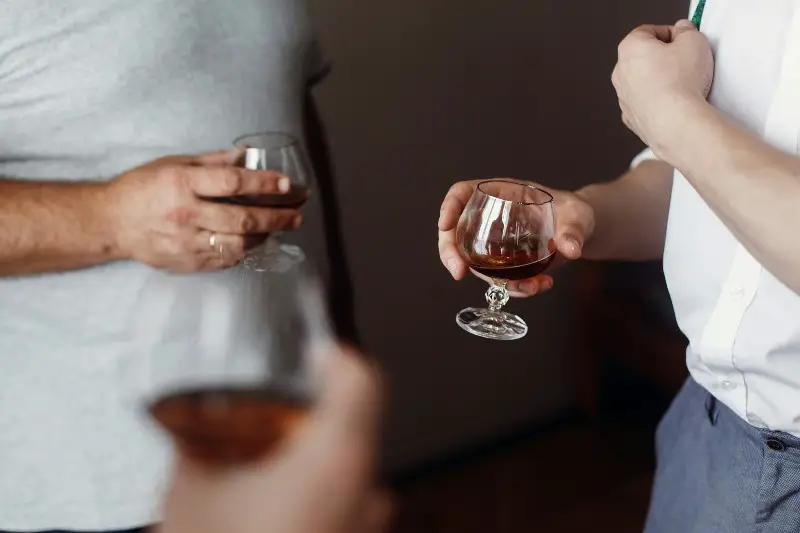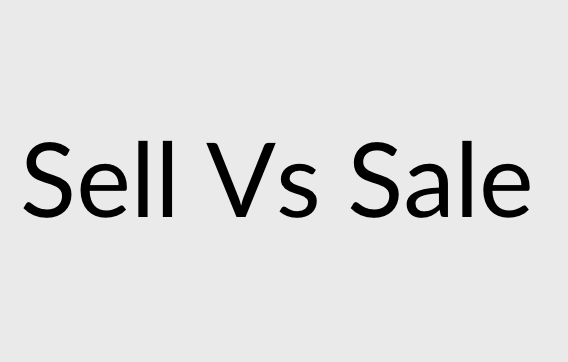Did you know that the Korean language has many different honorifics, with each one created for a specific context? For example, one such honorific is Oppa – which literally means “older brother.”
However, this honorific is used by young females when they want to refer to their older brothers, boyfriends, and close male friends.
When Can You Use Oppa?
To use this honorific title, you need to be aware of some “rules” based on the relationship and age of the man you call Oppa.
1. Relationship
First of all, you use it when talking to men with whom you have a close relationship. It’s typically used by younger women to address older men who are close to them, like brothers, close male friends, boyfriends, or husbands.
It would be weird if you used it for a man you don’t know well or have never met before.
2. Age Limitation
The age of the man is also a consideration.
It’s common to use Oppa to refer to men who are older but not significantly older (like 10 years or so) than you. You need to use other honorifics for men who are older than that.
On the other side, the minimum age difference depends on when you were born. For example, if you were born in January, and your friend was born in December, you can call him Oppa, even though he is only one month older than you.
However, imagine you were born in October instead. If your friend was born six months before you (April of the same year), you can’t call him Oppa, even though the difference between you two is bigger than in the first example. This is because the male needs to be born in the year before your birth year, so it’s not enough for him just to be older than you.
Some say “Oppa is generally used to refer a man who isn’t 30 years old or older. And if the man is older, you can call him Ajeossi instead.”
The term “Ajeossi” is used to address older men, typically those who are middle-aged and beyond in Korean culture, but there isn’t a strict cutoff at 30 years old. The transition from “Oppa” to “Ajeossi” is more about social context and your relationship with the man in question.
While age is a factor, there’s no strict rule that prohibits calling someone Oppa if he is 30 years or older. The use of Oppa depends more on your relationship and if you both are okay with it and understand each other.
The rules around the use of “Oppa” can vary depending on individual, regional, and situational contexts. It’s important to be sensitive to these nuances in Korean culture.
Who Can You Call Oppa?
Now that you know the general meaning and the rules of using Oppa, let’s see which people in your life “qualify” for this honorific. Obviously, since Oppa literally means “older brother,” you can use it to refer to your brother or male cousins who are older than you.
Do you have any male friends? Were they born in the years before you were born? You can also use Oppa for such friends. However, don’t forget that you can’t use Oppa for friends who were born in the same year or after you.
Some girls call their boyfriends Oppa. Don’t let this surprise you: in this context, Oppa doesn’t mean older brother; it’s more of a playful banter between two young people who are in love.
Interestingly enough, many girls use Oppa to refer to their favorite celebrities they have a crush on. In this context, there are no rules for who you can call Oppa. As long as you consider them handsome and attractive, you can call them this way.
As you can see, there are some rules and various contexts in which you can call someone Oppa. However, they all have one thing in common – calling someone Oppa is appropriate when you two are close and casual enough.
So, you shouldn’t call Oppa someone you just met or use this word in formal situations.
Why Do Korean Guys Like to Be Called Oppa?
The reasons why Korean guys might like to be called Oppa can vary, but here are a few possible explanations:
1. Affection and Familiarity
Being called Oppa by a younger woman can make a man feel respected and looked up to. It suggests a certain level of affection and familiarity, which can be emotionally pleasing.
2. Gender Roles and Social Status
In Korean culture, traditional gender roles and respect for seniority can play a part in relationships. When a woman calls a man Oppa, it might affirm his status as an elder or dominant figure, which aligns with some traditional cultural values.
3. Pop Culture Influence
The term has been popularized through Korean dramas, K-pop songs, and other media. Celebrities and idols are often referred to as Oppa by their fans, which may give the term a sense of glamour and desirability.
Men in general might enjoy being called Oppa because it resonates with the affectionate and sometimes idealized image portrayed in these cultural products.
4. Romance and Attraction
In a romantic context, Oppa can be a term of endearment akin to “honey” or “babe” in English. It can suggest that the man is protective, caring, and capable of taking care of the woman, which can be flattering and reinforce his sense of masculinity.
5. Ego Boost
For some men, being called Oppa could boost their ego, as it makes them feel needed and sought after. It can create a sense of pride in being able to provide guidance or support to a younger woman.
6. Personal Preference
Just as with any term of endearment, individual preferences play a role. Some men might simply like the way it sounds or enjoy the personal connection it signifies when used by someone they are close to.
However, not all Korean men enjoy being called Oppa. Personal preferences vary greatly, some might not place the same value on the term or might even dislike it due to personal or ideological reasons.
7. Bonding
Using the term Oppa can also be a way to strengthen the bond between two people. If a woman uses it with a man she is not related to, it can suggest a platonic yet close relationship.
In this context, it conveys that the woman trusts and feels comfortable with the man, which can be validating and create a sense of emotional intimacy.
Examples of Use
- “Oppa, do you want to go to the cinema with me?”
- “This is Oppa Kwan, my childhood friend.”
- “Oppa, you did a great job today!”
Is Oppa the Same as Hyung, Unnie, and Nuna?
Another interesting fact about Korean honorifics is that they depend on your gender and the gender of the person you are referring to. You already learned that if you are a female with an older brother/male friend, you can call them Oppa.
But what if you are also a male? What do you call your older brother or a male friend? If that’s the case, you use Hyung/Hyeong instead. In other words, Oppa is reserved for girls, and Hyung or Hyeong is reserved for boys.
Do you know which honorific word to use if you are a girl and you want to refer to your older sister or female friend? In this case, you use Unnie. Finally, if you are a boy with an older sister or female friend, you call them Nuna.
Many people who aren’t Koreans and don’t speak the Korean language use these honorifics interchangeably. However, as you can see, they are not the same. Still, they have one thing in common: you should only use them with someone you know well and when leading casual conversations.
Other Honorifics
What if you want to talk to someone who is your age or younger than you? Are there any honorifics for those people? Take a look at these honorifics:
- Chingu – If someone is your age, you can refer to them as Chingu, which literally means “a friend.”
- Dongsaeng – In cases when you are the older sibling, romantic partner, or friend, you can call the other person Dongsaeng, which means little “sister/brother.”
You probably wonder which honorifics you can use in more formal settings, for example, in the workplace. Or, maybe you want to know how to call people who are significantly older than you. Here are some honorifics you could find useful:
- Sunbae – Use it for anyone who’s your senior at work or in school. By being senior, we don’t mean being older than you, but having more experience. A person could be younger than you but have more work experience, hence deserving the Sunbae honorific.
- Hubae – The opposite of Sunbae. Someone who has less experience at work or school than you, regardless of their age.
Here are some other Korean honorifics you might find useful to know:
- Appa – Father
- Eomma – Mother
- Adeul – Son
- Ttal – Daughter
- Harabeoji – Grandfather
- Halmeoni – Grandmother
Keep in mind that you will need to use appropriate suffixes for these honorifics. Make sure to research at least some basic Korean grammar rules before you start to use any of these words. Finally, ensure that you use these honorifics only when it is appropriate and makes sense.
Conclusion
Oppa is an honorific Korean word used by females to refer to their older brothers, friends, boyfriends, and husbands. Its literal meaning is “older brother.” There are some rules when you can use this word, such as that the relationship and age gap generally not over 10 years.
The male you are addressing can be older than 30 years old. Also, he needs to be born before the year you were born, so it is not enough for him just to be older than you. In case this male doesn’t fulfill some of these requirements, there are other honorifics you can use instead.













